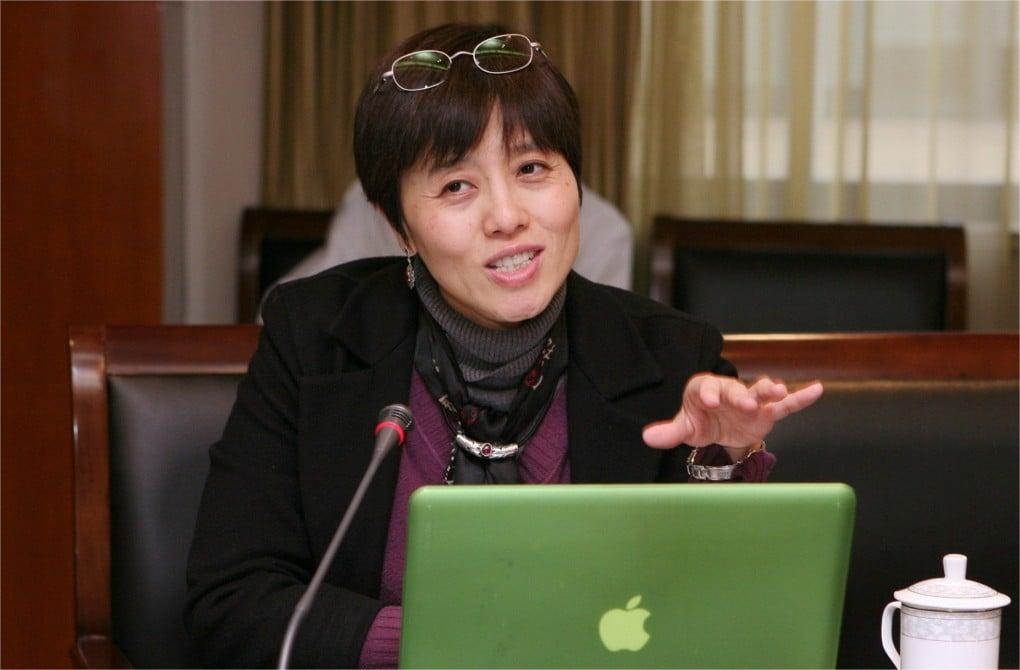
Chinese-born molecular biologist Jane Y. Wu was a prominent neuroscientist at Northwestern University, Illinois. Photo: Baidu
The scientific community was left reeling from the shocking news of Dr. Jane Y. Wu's death on July 10, 2024. A prominent neuroscientist and respected researcher at Northwestern University, Dr. Wu's passing at the age of 60 has sparked discussions about the pressures faced by Chinese-American scientists in the current political climate. Her untimely demise not only represents a significant loss to the field of neuroscience but also raises important questions about the impact of government scrutiny on researchers of Asian descent in the United States.
A Distinguished Career in Neuroscience
Dr. Jane Y. Wu's journey in the world of science began in her native China, where she completed her initial medical education at Shanghai Medical University in 1986. Driven by a passion for understanding the intricacies of the human brain, she pursued further studies in the United States, earning her Ph.D. in cancer biology from Stanford University. Her academic path led her to conduct postdoctoral research at Harvard University, where she honed her skills and developed a keen interest in molecular biology and neurodegenerative diseases.
Wu's exceptional talent and dedication did not go unnoticed. After a decade-long tenure at Washington University in St. Louis, she joined Northwestern University in 2005, where she assumed the prestigious position of Dr. Charles L. Mix Research Professor at the Feinberg School of Medicine. Throughout her career, Dr. Wu made significant contributions to our understanding of regulatory RNA-binding proteins and RNA splicing, with a particular focus on neurodegenerative conditions such as amyotrophic lateral sclerosis, Parkinson's disease, and frontotemporal dementia.
Her groundbreaking research not only advanced scientific knowledge but also held promise for developing new treatments for these devastating neurological disorders. Colleagues and students alike praised Dr. Wu for her innovative approach to complex scientific problems and her ability to inspire those around her. Her work attracted substantial funding from the National Institutes of Health (NIH), a testament to the importance and quality of her research.
A Mentor and Role Model
Beyond her scientific achievements, Dr. Wu was widely recognized as an exceptional mentor and role model for aspiring scientists. Her warm and caring nature, combined with her passion for research, left an indelible mark on those who had the privilege of working with her. Dr. Bing Ren, a molecular biologist and cancer researcher at the University of California, San Diego, credits Dr. Wu with opening his eyes to the "wonderful world of molecular biology" and guiding his career path.
Ren, who first met Wu in 1993 at Harvard University, recalls how she taught him basic molecular biology skills and demonstrated the process of making discoveries at the laboratory bench. Her influence was so profound that it convinced him to pursue a career in the field, a decision that has shaped his professional life ever since.
Dr. Wu's commitment to nurturing the next generation of scientists extended beyond the borders of the United States. She actively participated in mentoring programs and scientific conferences, sharing her knowledge and expertise with researchers in both China and the US. Her dedication to fostering international scientific collaboration was evident in her involvement with China's Thousand Talents Program, an initiative aimed at attracting leading scientists of Chinese origin back to China for short-term or permanent positions.

Northwestern University’s Feinberg School of Medicine, where molecular biologist Jane Wu worked. Photo: Northwestern University
The China Initiative and Its Impact
While Dr. Wu's scientific accomplishments and mentorship were widely celebrated, her career faced significant challenges in recent years. The launch of the China Initiative by the US government in 2018 cast a shadow over the careers of many Chinese-American scientists, including Dr. Wu. This controversial program, ostensibly aimed at combating economic espionage and protecting American research from foreign interference, disproportionately targeted researchers of Chinese descent.
The initiative led to investigations of more than 250 researchers, predominantly of Asian ethnicity, suspected of failing to disclose their work in China or violating other rules related to NIH funding. Although the program resulted in only a handful of convictions, its impact on the scientific community was profound. Many researchers lost their jobs, saw their careers derailed, or found themselves living in constant fear of scrutiny.
While it remains unclear whether Dr. Wu was specifically targeted by these investigations, sources close to her indicated that she was under close observation. The closure of her lab at Northwestern's Feinberg School of Medicine following her death, as reported by the advocacy group APA Justice, suggests that she may have been caught up in the wider net cast by the China Initiative.
The Human Cost of Political Scrutiny
The tragic circumstances surrounding Dr. Wu's death have brought renewed attention to the human cost of policies that target scientists based on their ethnicity or national origin. Colleagues and friends of Dr. Wu have expressed their belief that the investigations and resulting pressure essentially destroyed her career. Dr. Xiao-Fan Wang, a respected professor of cancer research at Duke University, echoed this sentiment, highlighting the devastating impact of such scrutiny on the lives and work of dedicated scientists.
The scientific community has rallied to express concern over the racial profiling implicit in programs like the China Initiative and the chilling effect it has had on international scientific collaboration. Haipei Shue, president of the nonprofit organization United Chinese Americans, described Dr. Wu's passing as a "tragic coda to the now-defunct China Initiative," emphasizing the personal toll exacted by such policies.
A Wake-Up Call for Science Policy
The circumstances surrounding Dr. Wu's death have ignited a broader discussion about the need for more balanced and equitable science policies in the United States. Many in the scientific community are calling for a reevaluation of approaches that may inadvertently stifle innovation and collaboration, particularly those that disproportionately affect researchers of Asian descent.
The incident has highlighted the delicate balance between national security concerns and the open exchange of scientific knowledge that has long been a hallmark of academic research. As the US continues to grapple with these issues, there is a growing recognition of the need to protect the country's scientific interests without alienating or discriminating against valuable contributors to the field, regardless of their ethnic background or international connections.
The Legacy of Dr. Jane Y. Wu
As the scientific community mourns the loss of Dr. Jane Y. Wu, her legacy continues to inspire and influence researchers around the world. Her groundbreaking work in neuroscience has laid the foundation for future advancements in the understanding and treatment of neurodegenerative diseases. The impact of her mentorship will be felt for generations to come, as those she guided continue to push the boundaries of scientific knowledge.
Dr. Wu's tragic death serves as a somber reminder of the pressures faced by scientists, particularly those of Asian descent, in an increasingly complex political landscape. It underscores the importance of creating a supportive and inclusive environment for all researchers, regardless of their background, to ensure that scientific progress continues unimpeded.
Conclusion
The untimely passing of Dr. Jane Y. Wu represents not only a personal tragedy but also a significant loss to the scientific community. Her brilliant mind, dedication to research, and commitment to mentoring the next generation of scientists have left an indelible mark on the field of neuroscience. As we reflect on her life and contributions, it is crucial to consider the broader implications of policies and practices that may inadvertently hinder scientific progress and collaboration.
Dr. Wu's story serves as a call to action for policymakers, academic institutions, and the scientific community at large to work towards creating an environment where researchers can pursue their work free from undue pressure or discrimination. Only by fostering an atmosphere of openness, inclusivity, and support can we hope to unlock the full potential of scientific inquiry and honor the memory of dedicated researchers like Dr. Jane Y. Wu.
As investigations into the circumstances surrounding her death continue, it is our collective responsibility to ensure that her legacy inspires positive change in the scientific world. By learning from this tragedy and working towards more equitable and supportive policies, we can strive to create a scientific community that truly reflects the collaborative and boundary-pushing spirit that Dr. Wu embodied throughout her remarkable career.







Post comments